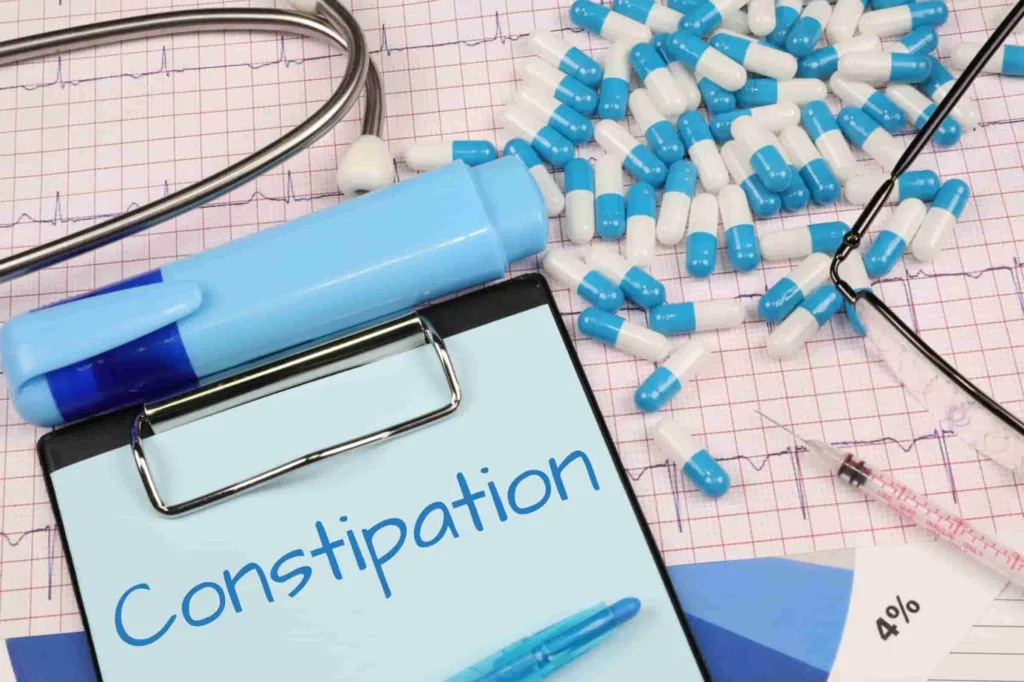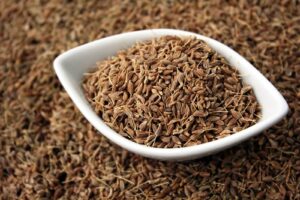Constipation is a common digestive problem that can strike anyone at any age. It happens when stool passes slowly through the colon, commonly known as the large intestine. As a result, the faeces may become firm, dry, and difficult to pass. A normal person should be able to pass stool from three times a day to three times a week.

Up to 15% of people worldwide suffer from constipation, according to the World Health Organisation. This indicates that the illness affects hundreds of millions of individuals. Constipation can significantly lower a person’s quality of life and be a highly upsetting and stressful experience.
Symptoms Of Constipation
Less than three bowel motions per week: The most typical sign of constipation is this.
Poop that is lumpy, dry, or hard: Hard stools can hurt and are challenging to pass.
Haemorrhoids and pain might result from straining to have a bowel movement.
A sense of unfulfilled emptiness You can feel as though your bowel movement wasn’t entirely empty even after having one.
Gagging and bloating: Bloating, gas, and stomach pain can all be symptoms of constipation.
Appetite loss: Being constipated can cause you to feel bloated and full, which might cause your appetite to disappear.
Causes Of Constipation
Constipation is a common digestive problem that arises when bowel motions become difficult or infrequent. It can be brought on by a number of circumstances and affect individuals of all ages.
Aspects of Lifestyle:
Low Fibre Intake:
One of the main causes of constipation is a diet low in fibre. Fibre gives stools more volume, which facilitates passage through the intestines.
Inadequate Fluid Intake:
Not getting enough fluids might cause firm, dry stools that are hard to get rid of.
Absence of Exercise:
Frequent exercise promotes regular bowel motions by stimulating intestinal contractions. Bowel function might be slowed down by a sedentary lifestyle.
Delaying Bowel Movements:
Constipation and stool hardening can result from ignoring the desire to use the restroom.
Medical Disorders:
Constipation, diarrhoea, or both can be symptoms of the chronic digestive illness known as irritable bowel syndrome (IBS).
Medication:
Constipation is a side effect of several drugs, including painkillers, antidepressants, and anticonvulsants.
Hormone Changes:
Constipation can result from hormone imbalances brought on by pregnancy, menopause, and thyroid conditions.
Neurological Disorders:
Constipation can be brought on by diseases that alter nerve signals to the intestines, such as multiple sclerosis and Parkinson’s disease.
Anatomical abnormalities:
Blockages or restricted channels in the intestines can cause structural issues that make it difficult to move the bowels.
Diagnosis
A physical examination, diagnostic testing, and a review of medical history are usually used to diagnose constipation. Below is a summary of the typical approaches:
Health History:
Detailed Symptoms:
Your doctor will inquire about the frequency, consistency, and toughness of your stools when examining your bowel movements. They might also ask about related symptoms including straining, bloating, and stomach pain.
Food and Lifestyle:
You can find possible contributing factors by evaluating your hydration intake, exercise regimen, food, and use of medications.
Previous Medical History:
It is possible to identify underlying reasons or predispositions by looking back at previous medical illnesses, operations, and family history.
Physical Assessment:
Palpation of the Abdomen:
The physician may lightly touch your abdomen to feel for any odd lumps, distention, or pain.
Digital Rectal Examination:
To evaluate muscle tone, stool consistency, and the presence of any anomalies, a gloved finger is placed into the rectum.
Exams for diagnosis:
Stool Testing:
To detect bleeding in the digestive system, stool samples may be examined for occult blood.
Imaging tests:
To identify blockages, structural irregularities, or inflammation in the intestines, X-rays, CT scans, or colonoscopies can be used to see the organs.
Colonic Transit Studies:
These examinations use barium contrast or radioactive markers to follow the passage of faeces through the colon. They are able to detect possible sluggish transit and evaluate intestinal motility.
Anorectal Manometry:
This examination gauges the force and synchronisation of the muscles used during defecating. It can identify muscular function issues that lead to constipation.
Balloon Expulsion Test:
This test evaluates muscular function and rectal feeling by seeing how well a tiny balloon can be forced out of the rectum.
Home Remedies For Constipation
While over-the-counter drugs and lifestyle modifications can frequently alleviate constipation, some people would rather look into naturopathic or natural therapies. Following are some home remedies to relieve and avoid constipation :
Enhanced Dietary Fibre
Increasing the amount of fibre you eat is a key strategy for treating constipation. Fibre gives stools more volume, which facilitates passage through the intestines. Aim for 25–35 grammes of fibre per day from foods such as whole grains, legumes, fruits, and vegetables.
Enema
Enema can be used to relieve severe constipation by stimulating bowel movement and helping to soften stool.
Chew your food properly
This is the fundamental eating behaviour that determines how well your digestive system functions. Unchewed pieces place additional strain on the digestive system, requiring it to create more enzymes to break down the food. Additionally, there is less pressure to secrete additional fluids during rapid digestion because the food has already been converted to glucose.
Consume No Starch
Recall that starch is the hardest sugar to break down, requiring a great deal of energy to do so in order to produce ATP and energy. Instead, because the digestive system is unable to fully break down the vast amounts, it begins to collect in the blood. Issues like diabetes and constipation are the result of this.
Hydration
Maintaining soft stools and avoiding constipation need consuming a lot of liquids, particularly water. Drink 3 to 4 litres of water everyday.
Frequent Exercise
Frequent exercise encourages regular bowel movements by stimulating intestinal contractions. Try getting at least 30 minutes of moderate-intensity exercise everyday.
Probiotics
Good bacteria that support a balanced gut microbiome are known as probiotics. They can ease constipation and assist in controlling bowel movements. Think about taking probiotic supplements or eating foods high in probiotics, such as kefir, sauerkraut, and yoghurt.
Natural Solutions
Some herbs, like peppermint, senna, and aloe vera, contain laxative qualities that might help ease constipation. See a physician or herbalist for advice on the right dosage and safety measures.
Warm Water with Lemon
Having a cup of warm water with lemon juice in the morning helps improve digestion and encourage bowel motions.
Olive Oil
Due to its lubricating properties, olive oil can help relieve constipation and soften faeces. On an empty stomach, try consuming one tablespoon of olive oil first thing in the morning.
Pressure Point Massage:
It’s thought that massaging certain pressure points on the abdomen, such the Ren Mai point, would encourage bowel motions. For advice on correct technique, speak with a licenced massage therapist or acupuncturist.
Yoga Asanas:
Some yoga postures might assist induce bowel contractions and encourage regularity. Examples of these poses are Wind-Relieving Pose (Pavanamuktasana) and Squat Pose (Malasana).
Reference : http://www.wikipedia.com
Disclaimer : This article is only for informational purposes and should not be treated as medical advice.







